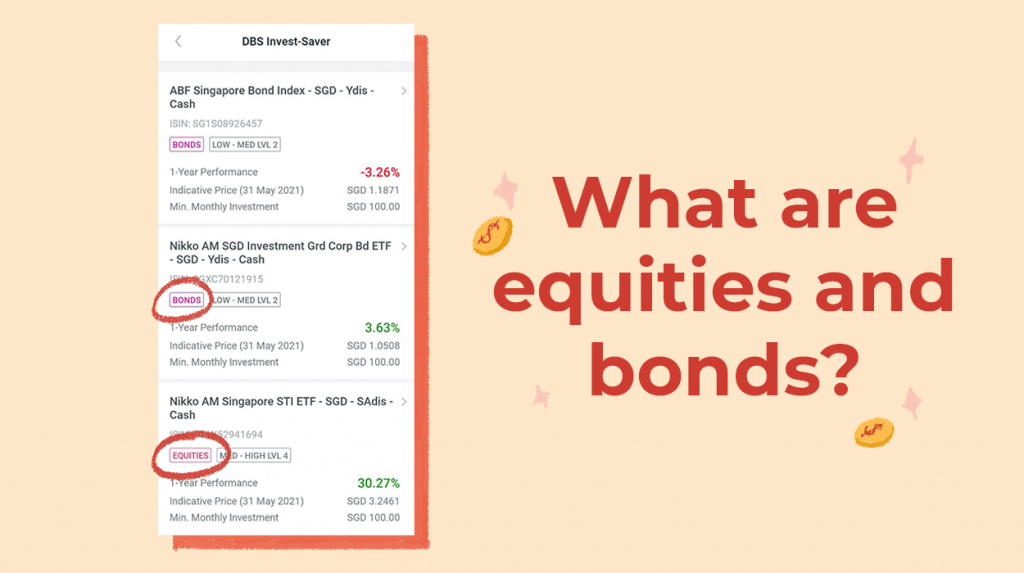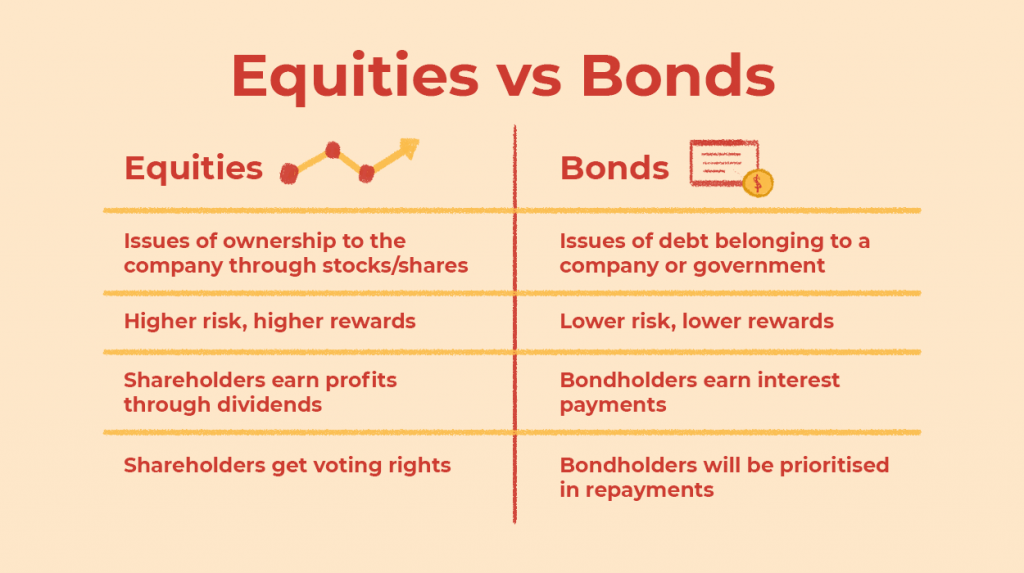 My Cart 0
My Cart 0

Finance 101: Equity vs Bonds
03 Jun 2021
As a first time investor, I've been researching about different investment strategies, starting with the ones that are beginner friendly.
Because I'm such a noob at all things finance, it was a really steep learning curve to understand what all the finance terms were, and then what each investment strategy meant (and this series is a place for me to share my findings).
You don't know what you don't know, so I spent weeks ploughing through countless blog articles, before finally deciding to put the studying on pause and shift gears into actual field study. Perhaps that will help me learn better.
One thing all first-time investors might want to consider is a regular savings account, especially if you have a small investment budget to begin with. You can look into DBS Invest Saver or OCBC Blue Chip Investment Plan.
Logging into my DBS iBanking account to check out their Invest Saver account, I hit my first road block.
What are equities and bonds?

Of course, I had not think to search that because it wasn't really in my vocabulary.
I've heard of these terms, but a savvy investor should know their investment products well, right?
First things first, definitions. Equities refers to stocks or shares, which gives you a some ownership of the company when you buy them. Bonds on the other hand are the company or government's debts, which you can purchase to receive an interest on the loan after a period of time.
Here's a quick summary of what equities and bonds are.

Key differences between equities and bonds
Equities, or shares, typically are a riskier investment vehicle compared to bonds. Shareholders are not guaranteed any returns. Your investments are entirely based on your judgement of the company, and the company's ability to make profits. Bonds are considered safer as bondholders will be repaid first in the event that the company does go belly-up. That said, higher risk higher rewards, and historically, stocks have performed better than bonds since 1928.
You do get paid regularly as a bondholder, depending on the type of interest repayment. What's most attractive about bonds are the regular cash payments that bondholders receive. It's an additional stream of predictable income that conservative investors can't reject. On the other hand, you can only make money from shares when you sell it at a higher price on the market, which is dependent on a whole host of factors.
So which should I choose?
As with all investment strategies, balance is key. Your portfolio can contain a mix of equities, bonds, and other investment vehicles as well, which is probably the way to go.
The tricker question is how much money should be allocated to each type of investment. This is dependent on your risk appetite and invesment horizon. What are your investment goals? Are you building your reserves to make a big purchase down the road? Are you saving long term for retirement? Asking these questions will distill the options available into the ones most suitable for you.
Of course, you have investment strategies you'd like to share with this investment noob, do leave a comment below! And follow us for more invesment and finance news coming your way.



